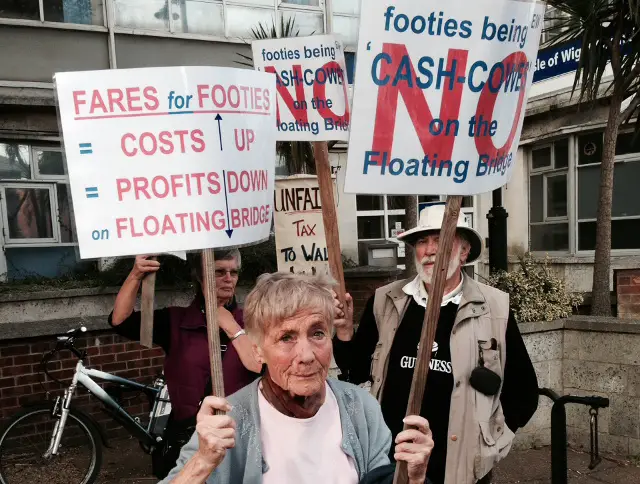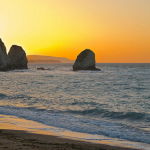The issue of whether the council should charge foot passengers on the Cowes floating bridge has recently been considered by a Task & Finish Group (TFG) from the Scrutiny Committee.
Papers were issued by the Isle of Wight council yesterday (Wednesday) revealing the findings of the group’s deliberations.
Scrutinising the approach to charging
The group, led by Cllr Bob Blezzard, and including Julia Baker-Smith, Ian Ward and Wayne Whittle, was set up on 3 April 2014 and tasked to:
To examine the approach to implementing fees and charges to ensure that these accord to the council’s financial and strategic objectives.
The areas they looked at were:
(a) Existing toll structure;
(b) Existing number of cars, lorries, motorbikes and vans using the facility;
(c) Existing expenditure costs and income.
(d) Funding of replacement vessel
20p each way for foot passengers
There has been wide opposition to the introduction of foot passenger fares on the floating bridge since it was first suggest back in February 2014 as part of the annual budget.
The paperwork reveals TFG recommends that if a toll for foot passengers was to be implemented, it should be set at 20p per journey rather than the proposed 50p each way.
They also felt the elderly and disabled should travel free of charge, as well as Islanders up to the age of 18.
Increase current fares
The task and finish group also supported increasing the following tolls:
(a) Cars from £2.20 to £2.50
(b) Motorbikes from £1.30 to £1.50
(c) Commercial vans from £3.00 to £3.50
(d) Lorries from £7.50 to £10.00
Concern over figures provided
The floating bridge currently makes a profit of between £140,000 – £250,000 per annum (depending on what set of figures you look at).
The council say they’re proposing the change to charging in order to help fill a £28m government funding gap over the next three years, as well as save towards a new floating bridge that would be needed in around 25 years time.
The group say they “were concerned as to the lack of consistent detailed information regarding income and expenditure from previous years”. Adding, the Executive should be “in receipt of complete breakdown of the expenditure and income for at least the previous five years before making a final decision”.
Funding for new bridge?
Finally, the group also called for full details of government funding and timescales for the new floating bridge to be made available to “all members at the earliest opportunity”.
Cllr Ian Stephens had previously told OnTheWight the new bridge would be fully-funded by the government and in the water by March 2016.
The paper
Click on the full screen icon to see larger version.





